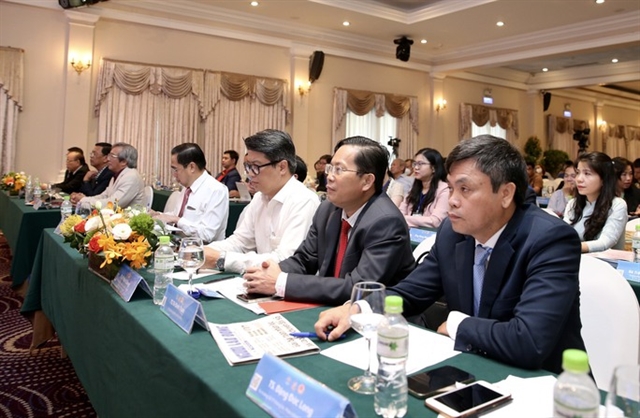 Society
Society

 |
Delegates participate in an international conference titled ‘High-quality human supply and demand for East Asian markets: Challenges and solutions for HCM City’ in HCM City on June 29. VNA/VNS Photo
HCM CITY – With the fourth industrial revolution sweeping the globe, high-quality human resources will play a decisive factor in the success of Việt Nam’s digital transformation, a seminar heard in HCM City on June 29.
The country’s rate of trained workers with university degrees is only 24.6 per cent, which translates into a severe shortage of quality human resources.
To discuss this, Văn Hiến University and the city Department of Labour, War Invalids and Social Affairs held an international conference titled ‘High-quality human supply and demand for East Asian markets: Challenges and solutions for HCM City.’
Đặng Đức Long of the Central Economics Committee said with the world labour market changing rapidly, the city needed to develop a new strategy of sending workers and experts to work in developed countries to learn and gain experience.
Nguyễn Văn Lâm, deputy director of the city Department of Labour, War Invalids and Social Affairs, said there were more than 100 labour export businesses in HCM City sending workers to work abroad.
But according to the State Bank of Việt Nam, the number of people going abroad to work is not high since there is barely an income disparity.
Besides, companies need to implement a number of changes to their current labour policies to meet the provisions of free trade agreements like the EU-Vietnam Free Trade Agreement (EVFTA), such as commitments to ensuring workers’ rights to collective bargaining and eliminating forced and child labour and workplace discrimination.
The EVFTA is an opportunity for Vietnamese labour to develop, but workers need to be equipped with the right skills to take advantage of such opportunities, according to experts.
The trade deal is expected to create 18,000-19,000 jobs a year in the next decade, a majority in textile, footwear and furniture manufacturing as tariffs on Vietnamese products exported to the EU are set to be scrapped.
Labour quality remains a problem for Việt Nam.
European firms expect employees to have both technical and language skills and are hoping to see these demands addressed by the Government. – VNS




